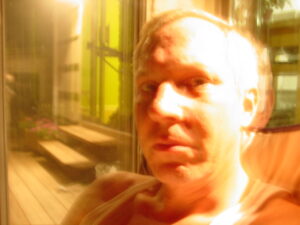

Today, Feathered Quill reviewer Dianne Woodman is talking with Stephen Baker, author of Donkey Show.
FQ: How did you come up with the premise for Donkey Show? Was there any specific motivation behind the writing of this story?
BAKER: When I was working as a reporter at a newspaper in El Paso, a photographer was beaten while on assignment across the border. He brought back a death threat for our lead drug reporter. The paper launched a successful crusade pushing the Mexican government to jail the drug lord.
For my book, I decided to build fiction around this event, changing crucial elements. What would happen, I thought, if it hadn’t been the drug lord who issued the threat, but instead underlings who wanted to topple him? The whole crusade would then be built upon lies and misunderstandings. The resulting story would focus on the hunt for what really happened (and who was behind it).
FQ: You created a perfect cast of characters with distinctive characteristics and competing agendas. Are any of them inspired by real people? If not, how did you decide on the characters and their personalities?
BAKER: I launched a few of the characters with the shapes and voices of people I know. But they diverged quickly, all of them going their own ways.
FQ: Why did you choose to write the story using multiple points of view?

BAKER: The whole story revolves around people who only know a piece of the story. So it was fun, I thought, to see how they were putting things together, and how their personal agendas colored their views and perceptions.
FQ: Was there any special significance in having events take place in Juarez, Mexico, and El Paso, Texas?
BAKER: The border is a wonderful place for misunderstandings and conflict. People often don’t understand their neighbors, and fill in knowledge gaps with speculation and prejudice. It was a great place to be a reporter, because you can be a foreign correspondent while covering local news. I’ve loved El Paso/Juarez from day one. It was also the scene for my previous novel, The Boost.
FQ: You did an excellent job of writing vivid and realistic setting descriptions. Have you lived or traveled to Juarez and El Paso? If not, what type of research did you conduct?
BAKER: I used to live and work there, and have returned many times since.
FQ: Was the corruption of law enforcement officers who faced no repercussions for their actions based on real-life examples?
BAKER: I don’t want to feed into anti-Mexico prejudice by harping on corruption. But as in many places, law enforcement in Mexico is often driven by politics and economics.
FQ: Do you think that newspaper stories play a prominent role in political views, government actions, and individual behaviors as depicted in the story?
BAKER: I placed Donkey Show in the past, in the 1990s, at a time when local newspapers carried much more weight than they do today. One thing we tend to forget is that back then, in those pre-Internet days, if you wanted to publish something, you had to get your foot into the door of a newspaper. You could not blog or post on Facebook. Newspapers, with their hierarchies of editors, had to open their doors to you. (Getting published is an obsession for one of the characters, Ruben.) The lies in a modern-day Donkey Show would bypass newspapers altogether. They’d revolve entirely around social media and text messages.
FQ: Could you explain more about the differences between the PRI and PAN political parties of Mexico that were referred to in the story?
BAKER: The PRI, or the (oxymoronic) Institutional Revolutionary Party, had run Mexico as a one-party state for about 75 years. The PAN, or National Action Party, wanted Mexico to turn into a multi-party democracy with freer markets and more entrepreneurship. Influenced heavily by the United States, the PAN was strong in the north. It was a historic change in 2000 when a PAN candidate, Vicente Fox, was elected president of Mexico. Since then, Mexico has developed a multi-party democracy. Sadly, though, criminal cartels now control important swaths of the country.
FQ: The North American Free Trade Agreement played a vital role in the storyline. What made you decide to focus on the trade agreement?
BAKER: NAFTA came about following the fall of the Berlin Wall. This was a time when many believed that free markets were going to remake the world, bringing people together and transcending borders. Plenty of cynics wrapped their own agendas into all of the hype and optimism. NAFTA was useful for Donkey Show’s story, because it promised to make at least a couple of the characters fabulously rich. This raised the stakes for them, and gave other characters leverage.
FQ: You have written a compelling thriller in which the ending leaves it open for the possibility of a sequel. Do you plan on writing one?
BAKER: I’d very much like to write a sequel. I’m hoping that the feedback I get from Donkey Show will provide valuable guidance.
Disclosure in Accordance with FTC Guidelines 16 CFR Part 255
Copyrights © 2023 Feathered Quill Reviews All Rights Reserved. | Designed & Developed by Unglitch.io